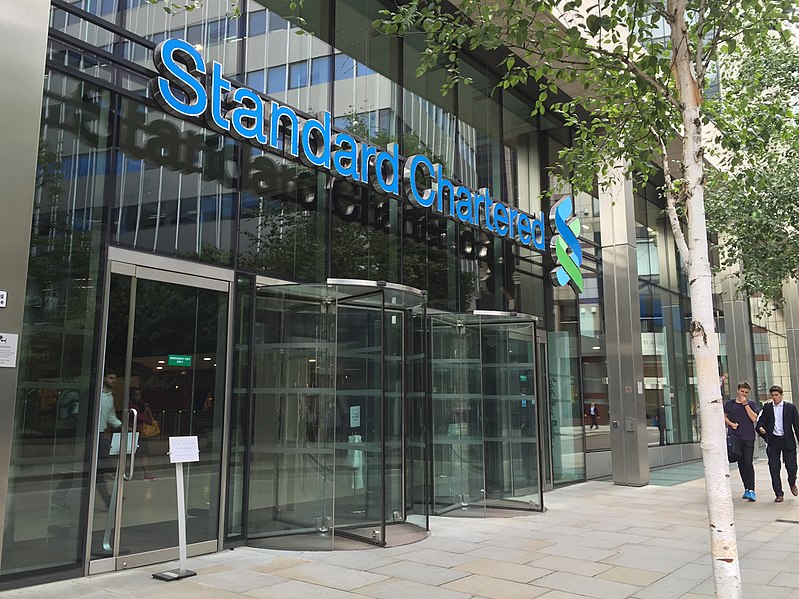
A British bank that avoided prosecution for money laundering is now accused of facilitating billions of dollars in transactions for terrorist financiers, according to recent
US court filings.
Standard Chartered, one of the UK’s largest banks, was saved from prosecution by the US Department of Justice in 2012 after intervention by the UK government under Lord Cameron. However, new documents submitted to a New York court allege that the bank conducted thousands of transactions worth over $100 billion from 2008 to 2013, breaching US sanctions against Iran.
An independent expert identified $9.6 billion in foreign exchange transactions with individuals and entities designated by the US government as funders of terrorist groups, including Hezbollah, Hamas, al-Qaeda, and the Taliban. Standard Chartered disputes these claims, stating that previous allegations had been "thoroughly discredited" by US authorities.
Sanctions Breached
Standard Chartered was publicly accused of falsifying transaction data on the Swift payment system to move billions through its New York branch for sanctioned entities such as the Central Bank of Iran. In September 2012, George Osborne, then Chancellor under Lord Cameron, intervened on the bank's behalf, and three months later, the US Department of Justice chose not to prosecute.
The foreign exchange transactions detailed in the court filings had not yet been discovered, and there is no suggestion that Osborne or Cameron were aware of these transactions at the time. The bank has admitted to breaching sanctions against Iran and other countries twice—first in 2012 and again in 2019—paying over $1.7 billion in fines. However, it has not admitted to facilitating transactions for terrorist organizations.
Whistleblower Evidence
The transactions were concealed in confidential bank spreadsheets provided to US authorities in 2012 by whistleblowers, including former Standard Chartered executive Julian Knight. They allege that US government agencies made false statements to dismiss their claim for a whistleblower reward.
The case was dismissed in 2019 after an FBI agent testified that there was no indication of improper US dollar transactions post-2007. However, David Scantling, an expert in counter-terrorist financing, reviewed the data and found records of over half a million transactions between 2008 and 2013 that were "cloaked" but could be extracted using techniques known to analysts in his field.
Links to Terrorist Financing
Scantling's declaration states that Standard Chartered processed transactions for Iranian banks and Middle Eastern money exchanges financing designated terrorist organizations. Notably, the bank facilitated transactions for a Pakistani fertilizer company, Fatima Fertiliser, known for selling materials used by the Taliban in roadside bombs against UK and US military personnel in Afghanistan. Additionally, the bank processed 73 transactions for a Gambian front company owned by key Hezbollah financier Mohammad Ibrahim Bazzi.
New Disclosures
Daniel Alter, former general counsel at the New York Department of Financial Services, which first pursued Standard Chartered for breaching sanctions, described the new disclosures as "shocking" and "exponentially worse" than what the bank admitted in 2012. He highlighted the frightening connections to terrorist organizations, which were not apparent in the initial data reviewed by regulators.
Government Intervention
Standard Chartered, headquartered in London, primarily serves customers in Africa, the Middle East, and Asia. In 2012, Osborne intervened to prevent the bank from facing criminal prosecution for money laundering by the US Department of Justice. In September of that year, Osborne wrote to key US officials, including Ben Bernanke and Tim Geithner, and met with them the following month. Two months later, the bank was fined $300 million but avoided prosecution with a deferred prosecution agreement (DPA).
Ongoing Investigations
In 2019, Standard Chartered agreed to another DPA for transactions between 2007 and 2011, paying an additional $1.1 billion in fines. Both the FBI and US Department of Justice declined to comment on the new allegations, while Standard Chartered expressed confidence that the courts would reject the whistleblowers' claims. The bank maintains that previous investigations concluded the allegations were "meritless."
Whistleblowers argue that US authorities committed "a colossal fraud" by denying the provision of previously unknown, damning evidence. Photo by Cobaltblue25, Wikimedia commons.




































